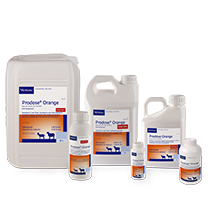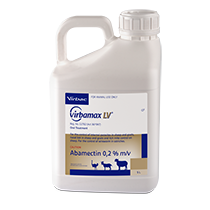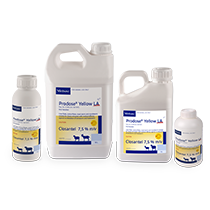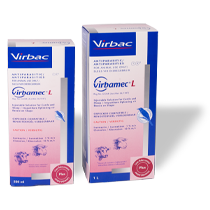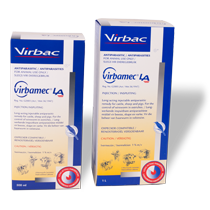
The importance of deworming rams before mating
Why?
Although rams make up only 3% of the breeding flock, they can have a major effect on reproduction if they are not fully fit and ready for the mating season. In addition to reducing animal growth rates and wool growth, and causing weakness and scours, internal parasites can also result in poor reproductive performance.
Depending on factors such as the climate, season, and type of pasture, deworming can be of great value. Deworming can be regarded as supplemental to flush-feeding, due to the fact that it eliminates the negative effects that internal parasites may have on the rams (e.g. anaemia, reduced appetite, diarrhoea, irritation, nasal worm, etc.).
Sperm develops over a period of around 49 days. Therefore, rams need to be in great health and their bodies in excellent condition two months before the start of the mating season to ensure a high quantity of good-quality semen during mating.
Although we had a cold winter and would think that internal parasites won’t be a problem, we shouldn’t take any chances. Inhibited larvae will develop as soon as conditions become favourable – even before larvae are ingested from the grazing. Most rams are kept in smaller camps and closer to home before the start of mating. These conditions can also contribute to a parasite burden that develops quicker than expected and have a negative effect on sperm development.
Roundworms, nasal bot, and liver fluke are the most important parasites to control. Roundworms affect appetite and can lead to scours and/or anaemia that affect body condition and semen production. Nasal bot can reduce the rams’ ability to smell ewes that are in heat and can also cause severe irritation. Liver fluke can reduce important liver functions that range from reduced hormone production, to poor protein and energy synthesis that lead to reduced body condition, to reduced storing of trace minerals needed for optimal sperm production and development (Zn, Cu, Se).
When and what?
-
Deworm rams at least two months before the start of the mating season with a remedy that controls the inhibited larval stage of roundworm, as well as nasal bot larvae in the sinus cavities. Virbamax First Drench is an ideal remedy in non-liver fluke areas, as it will control a broad spectrum of roundworms (including inhibited larval stages), as well as nasal bot. In liver fluke areas, the chosen remedy must also control this parasite. Flukazole C has the most comprehensive liver fluke registration and will also control roundworms and milk tapeworm. Prodose® Orange can be used as an alternative for liver fluke control, whilst also controlling roundworms (with residual action) and nasal bot, as well as milk tapeworm.
-
Deworm rams prior to introduction to the ewes with a remedy that provides residual action against wireworm. Such a remedy can be beneficial considering that one does not want to handle the rams (and ewes) unnecessarily during the mating season. Handling and the associated stress may lead to a reduced conception rate. The following two options both offer a residual efficacy of 35 days against wireworm.
Key points to remember when deworming:
- Use an effective product for the job and always check that the drench gun is compatible with the product.
- Carefully read the label before drenching and follow the instructions. Adhere to the recommended dose rate, withholding period, and any precautions or contraindications.
- Calibrate the drench gun using a measuring cylinder before the start of drenching, and recheck after every 200 sheep. Weigh some sheep to set the appropriate dose for the heaviest sheep in the mob.
- Excess speed can cause sheep to be missed, to spit out the drench, or to be injured.
- Keep the sheep’s head level (horizontal) with one hand, while slipping the gun into the side of its mouth. Place the tip of the barrel over the sheep’s tongue and gently depress the trigger.
Since areas differ, it is advisable to consult your local vet, nutritional expert, and Virbac Technical Sales Advisor to ensure the use of the correct product and nutritional regime.

